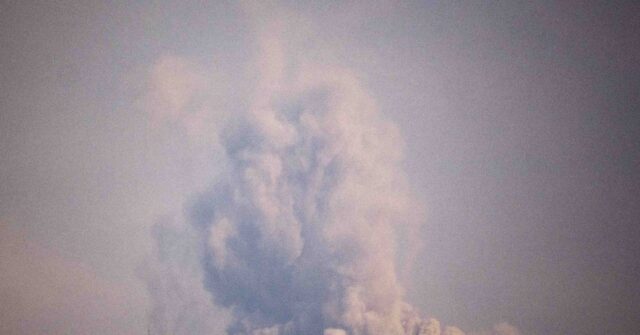The recent operations by the Israel Defense Forces (IDF) against Hezbollah in southern Lebanon have marked a significant escalation in the ongoing conflict. On Tuesday, the IDF reported that they successfully targeted and destroyed several underground command bunkers attributed to Hezbollah forces, resulting in the death of around 50 terrorists. This military action was executed through a well-coordinated effort involving the Israeli Air Force (IAF), in collaboration with the IDF’s Intelligence Directorate and various operational commands. The strikes specifically targeted units within Hezbollah’s Southern Front, which has long established an extensive underground network to facilitate attacks against Israeli forces and civilian areas in northern Israel.
The IAF’s operation was conducted following intelligence assessments indicating the presence of key Hezbollah commanders and operatives within these bunkers who were responsible for planning and executing attacks, such as the “Conquer the Galilee” offensive. The strikes targeted multiple Hezbollah units, including the Aziz Unit, Nasser Unit, and Radwan Forces, among others. The IDF emphasized that these actions were part of a broader strategy to alter the security landscape in northern Israel, aiming to degrade Hezbollah’s operational capabilities and dismantle its infrastructure. The recent attacks by Hezbollah on Israeli territory are seen as retaliatory, but the IDF’s response has been swift and decisive, demonstrating its commitment to defending Israeli sovereignty.
During the airstrikes, the IDF claims to have eliminated several high-ranking Hezbollah commanders, including individuals who directed operations against Israeli soldiers and communities. Among those killed were key figures responsible for coordinating attacks in various sectors, particularly the command structures that were pivotal for executing large-scale assaults like the one planned for October 7. The IDF contends that by removing these leaders and their operational bases, it has dealt a substantial moral and tactical blow to Hezbollah’s capabilities. The IDF’s spokesperson highlighted that this attack significantly undermines the threat level posed by Hezbollah to Israeli civilians and military personnel alike.
In parallel with strikes in southern Lebanon, the IDF also targeted locations in Damascus, Syria, where Iranian military advisers associated with Hezbollah are believed to operate. This dual-front strategy illustrates Israel’s broader regional defense initiative, aimed at addressing not only immediate threats from neighboring Lebanon but also the strategic support that Hezbollah receives from Iran. By striking deep into enemy territory, Israel is reaffirming its stance on preemptive action against perceived threats, reinforcing its military and diplomatic message to adversaries in the region.
Despite the IDF’s aggressive counteractions, Hezbollah has shown its resilience by launching a series of rocket attacks on the Israeli port city of Haifa. Although the quantity of rockets fired was less than expected, the organization’s ability to target Israeli cities highlights the ongoing volatility of the situation. Most of the rockets were intercepted by Israel’s air defense systems, resulting in only a few injuries but raising concerns over civilian safety in northern Israel. In response, the IDF has taken measures to destroy rocket launching positions, signaling that they remain prepared for both offensive and defensive operations.
In light of these developments, schools in northern suburbs of Haifa have been closed as a precautionary measure, reflecting the heightened state of alert among Israeli authorities. The situation continues to evolve as both Jerusalem and Beirut navigate the emerging threats and retaliatory measures. The IDF’s recent actions serve not only a military purpose but also a psychological one, aimed at dissuading Hezbollah from further aggression while signaling to Israeli citizens their commitment to security and defense against terrorism. This complex and volatile situation underscores the delicate balance of power in the region, where military engagements are intricately linked with broader geopolitical dynamics involving Hezbollah, Iran, and Israel.

